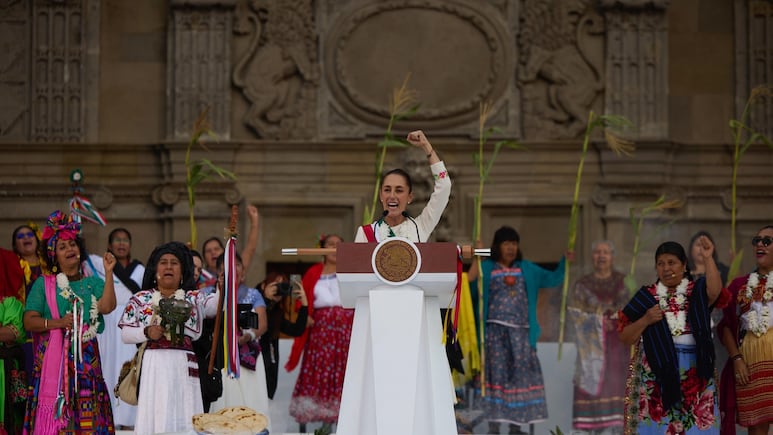Sheinbaum and her foreign policy
Although relatively brief on foreign policy issues, or regarding the relationship with the United States, President Claudia Sheinbaum

Although relatively brief on foreign policy issues, or in relation to the United States, President Claudia Sheinbaum outlined a series of principles in her early speeches that, while not a break from previous policies, do imply adjustments in foreign policy.
Publicidad
First of all, and nothing new under the sun, “we want peace and fraternity among Nations, and we coordinate, but we do not subordinate.”
This principle is important because, in her own words, she highlighted the importance of the relationship with North American partners.
“We will take advantage of the trade agreement with the United States and Canada to continue promoting the relocation of companies while promoting regional development with well-being and environmental care. The United States, Canada, and Mexico know that economic cooperation strengthens all three nations,” she said.
Publicidad
Within this framework, she signaled interest in the global economy.
Publicidad
Sheinbaum presented a list of projects that involve greater railway communication with points on the U.S. border, which also implies increased cargo capacity and the possibility of reducing at least some of the heavy traffic through Texas.
She also emphasized the importance of Mexican migrants, whom she described as “heroes,” expressing gratitude for their contribution to the national economy and noting that they are also a pillar of the U.S. economy. “We will always be grateful and admire their work, for the support they give to their families every month; for this, we will always defend them.”
In what was somewhat of a declaration of principles, she gave the following instruction to the Ministry of Foreign Affairs: “its main task will be to attend to our compatriots in consulates in the United States and other countries with dignity.”
Certainly, she didn’t mention the resources that will be dedicated to this task, but given the importance she placed on the country’s international economic ties and the necessary participation of the Foreign Ministry, in coordination with the Ministry of Economy, greater availability would be desirable.
Also of importance were her remarks about potential extensions of the interoceanic railway to Guatemala, which, along with the already announced link to Belize from the so-called Maya Train, is a clear declaration of interest in relations with Central America.
The President stated that her government’s foreign policy “will follow the constitutional principles of self-determination of peoples, non-intervention, and peaceful resolution of disputes,” something that is established but sometimes stretched almost to the breaking point by former president Andrés Manuel López Obrador.
Still, there will be some points of tension, such as the disagreement with Spain over the demand for an apology for the treatment of Mexican indigenous peoples by Spanish conquerors during the Conquest and Colonial periods, and undoubtedly, the break with Ecuador after the invasion of the Mexican embassy in Quito last April.
Publicidad
Publicidad
Más Leídas | Heraldo USA
No sólo es Karely Ruiz: conoce el top 5 de las mexicanas mejor pagadas de OnlyFans
Por Heraldo USA
¿Cuál es el peso y estatura de Salma Hayek en 2024?
Por Heraldo USA
Qué es la “Teoría del Loco” de Trump y cómo está cambiando el orden mundial
Por Heraldo USA
¿Florinda Meza fue la responsable del final de El Chavo del 8? Esto dijo Mhoni Vidente
Por Heraldo USA
Publicidad
Más noticias de Foreign policy
Más noticias de México









